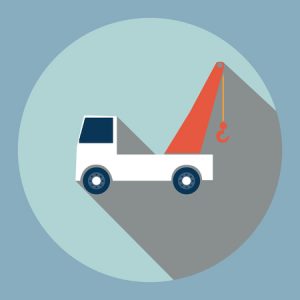 Most homeowner associations and condominiums have parking rules in their governing documents. These will often include limitations or complete bans on parking on the community streets or certain portions of the common elements. For violations of these provisions, many associations will be able to (1) fine the violating owner, or (2) boot/tow the violating vehicle. Before proceeding with these options, however, boards and property managers should make sure to follow the procedures outlined by their governing documents and local law.
Most homeowner associations and condominiums have parking rules in their governing documents. These will often include limitations or complete bans on parking on the community streets or certain portions of the common elements. For violations of these provisions, many associations will be able to (1) fine the violating owner, or (2) boot/tow the violating vehicle. Before proceeding with these options, however, boards and property managers should make sure to follow the procedures outlined by their governing documents and local law.
Fining the Violating Owner
If an association wants to fine an owner for violating its parking rules, it is important to thoroughly document the violation (e.g., photograph the vehicle with date and time stamps) and then follow the notice procedures set forth by the governing documents. The association may need to send a notice to the owner that identifies the nature of the violation, reveals the fine being imposed, and informs the owner that he/she can request a hearing with the board to challenge the fine and/or violation. The governing documents may also authorize the association to impose the fine at the time of the notice, or they may require the association to wait until the right to request a hearing has expired.
Fining the Violating Owner for Parking on a Public Street
Up until this point, the presumption is that associations can fine owners for parking violations if (i) their governing documents allow for it and (ii) the violation takes place on the association’s property. But what if, for example, the violation is on a public street? The Superior Court of Cobb County examined this issue not too long ago.
In Creekside Community Association, Inc. v. Figura, an association was awarded over $21,000 in damages when two owners were repeatedly fined for parking their vehicles on the community’s public streets. The court rejected the owners’ argument that the parking rule was invalid because it went beyond the association’s jurisdiction. In other words, the owners contested that public streets could only be subject to the local traffic laws. Ultimately, the court determined that the association was simply trying to enforce its contractual rights with the owners, and the parking rule itself did not interfere with the government’s ability to enforce its own laws. Other jurisdictions have since followed the Creekside decision and upheld similar fines primarily because the owners all purchased property in restricted communities.
Booting/Towing the Violating Owner
Like fining, if the governing documents allow for booting and/or towing vehicles, boards and property managers need to follow the required procedures. However, if the violating vehicle creates a hazardous condition, most governing documents will allow the association to tow the vehicle immediately without any notice. On the other hand, if the vehicle does not pose an immediate concern, the governing documents may require that the association send a notice to the owner, providing a deadline to move the vehicle before it is booted or towed. A similar notice may also need to be posted on the actual vehicle, which helps ensure that a non-owner is informed of the pending violation. In addition, most local laws require that a “no parking” sign be conspicuously placed within the community. The sign should warn that parking violators will be booted/towed at their own expense, and it should include the name and phone number of the towing company.
Before deciding to boot/tow a vehicle, however, associations should check whether their streets are private or public. If they are private, the association probably has the right to boot/tow the vehicle; if they are public, the Association cannot. In Hardin v. City Wide Wrecker Service, Inc., the Georgia Court of Appeals held that a towing company was liable for theft for removing a vehicle off a public street on behalf of a homeowners association. The Court’s opinion does not state whether the owner of the vehicle was a member of the association, and it does not address why the association was left out of the suit. Nevertheless, the Court made it clear that associations do not have the authority to boot/tow vehicles from their own public streets.
In sum, many associations will have these useful tools to ensure proper parking in their communities; however, boards and property managers should exercise due care while using them, and they should contact the association’s attorney with any related questions or concerns.
